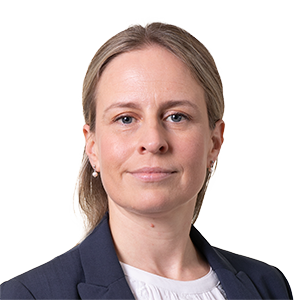Summary
The ‘Omnibus package’ is due to be negotiated by the European Parliament and the Council. When initially published by the European Commission on 26 February 2025 (see our previous publication on this here), the Omnibus instantly drew attention in light of the significant changes it sought to introduce to the EU Corporate Sustainability Reporting Directive (CSRD) and the Corporate Sustainability Due Diligence Directive (CS3D).
The Omnibus consists of two main proposals:
First proposal
This postpones the implementation dates of the CSRD and CSDD, and has now come into force (see our publication on this here).
Second proposal
This seeks to introduce substantive changes to the CSRD and CS3D. The second Omnibus proposal is in draft form and is going through the EU’s legislative procedure. The negotiating mandate taken by the Council as well as the amendments proposed by the European Parliament rapporteur indicate that the second Omnibus proposal may still be subject to significant changes before it becomes law.
Council negotiating mandate
The Council has recently published its negotiating mandate on the Omnibus. At a general level, the Council proposes to further limit the scope of companies subject to the requirements of the CSRD and CS3D and reduce the reporting and due diligence obligations under these Directives.
Key positions taken by the Council include the following:
CSRD
- Scope: net turnover threshold raised to over €450 million for EU issuers and EU companies (including EU parent companies of a group) to fall in scope in addition to the employee threshold of 1,000 already proposed by the European Commission. This compares to the threshold €50 million net turnover or €25 million balance sheet total in the current wording of the CSRD and the Omnibus. The Council agrees with the removal of listed SMEs from the scope of the CSRD.
- Review clause: the scope of entities subject to CSRD may be subject to review by the European Commission, in particular in relation to companies with net turnover below €450 million and number of employees not exceeding 1,000 as well as non-EU companies with direct operations in the EU but without an EU subsidiary or branch.
- Transition plans: in-scope companies to be required to disclose plans which “contribute to the transition to a sustainable economy” (the current wording of the CSRD is for the plans to be “compatible with the transition to a sustainable economy”).
- Information exempted from disclosure: information which may seriously prejudice the commercial position of the disclosing entity as well as information relating to IP and classified information may be omitted in certain circumstances.
CS3D
- Scope: limiting the scope of application to EU companies (including EU parent companies of a group) with more than 5,000 employees and net worldwide turnover of over €1.5 billion, and to non-EU companies (including ultimate non-EU parent companies of a group) having generated a net turnover in the EU of over €1.5 billion. This compares to a threshold of €450 million net worldwide turnover and 1,000 employees for EU-companies and €450 million net turnover in the EU for non-EU companies under the current version of the CS3D. Notably, the European Commission had not proposed changes to the thresholds under the Omnibus.
- Due diligence assessment: the requirement to identify and assess actual and potential adverse impacts is to involve a scoping exercise limited to the company’s own operations, subsidiaries and direct business partners. An in depth-assessment is only required in areas where adverse impacts are identified to be most likely to occur and most severe. Companies will also be required to map their chains of activities to identify their indirect business partners and carry out an in-depth assessment of indirect business partners where “objective and verifiable information” suggests there being adverse impacts.
- Transition plans: requiring companies to adopt a transition plan for climate change mitigating “outlining” amongst other things, implementing actions, which aims to ensure “through reasonable efforts” (cf. ‘best efforts’ in the current version of the CS3D) that the business model and strategy “contribute to” (cf. “compatible with” in the current version of the CS3D) the transition to a sustainable economy. In line with the Omnibus, there would no longer be a requirement to “put into effect” climate transition plans.
- Penalties: whilst the Omnibus removes reference to a fine threshold, the Council seeks to introduce a maximum limit of pecuniary penalties at 5% of the company’s net worldwide turnover.
- Timeline: postponement of the transposition date to 26 July 2028 (cf. this is 26 July 2027 in the Omnibus) and corresponding postponement of the first date of application of the CS3D to 26 July 2029 (cf. this is 26 July 2028 in the Omnibus).
European Parliament negotiating mandate
The European Parliament is yet to publish its negotiating position on the Omnibus. However, there are already signs that the European Parliament may also seek to introduce amendments to the Omnibus with a view to further reducing the requirements.
The draft report by the European Parliament’s Rapporteur sets out suggested changes to the CSRD and CS3D. These include, for example, increasing the threshold for companies to fall within scope of the CSRD to those with more than 3,000 employees (this is 1,0000 in the Omnibus) as well as net turnover over €450 million. Ultimate parent undertakings which are financial holding entities would be exempted from the reporting requirements provided their subsidiaries comply.
However, the negotiating position that will be taken by the European Parliament is still under discussion.
Next steps
It is expected that negotiations on the Omnibus proposal will continue following the Summer, with final votes taking place towards the end of 2025 or early 2026. In light of the amendments to the Omnibus being considered by the Council and the European Parliament, it may take some time before a clear position is known on what the final reporting and due diligence requirements will look like for in-scope companies.
Norton Rose Fulbright will continue to monitor the progress of the substantive Omnibus proposals as they undergo the legislative process and will provide an update in due course.







